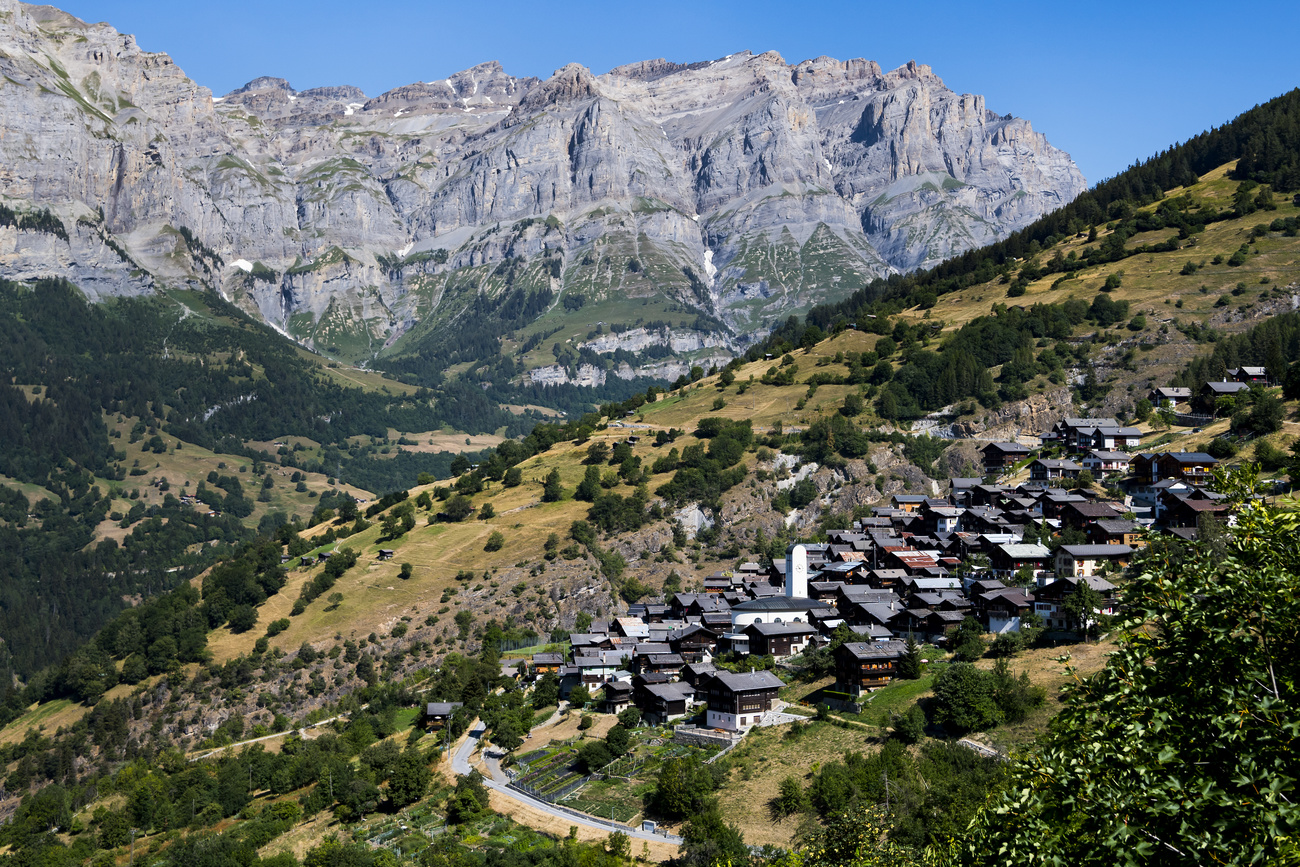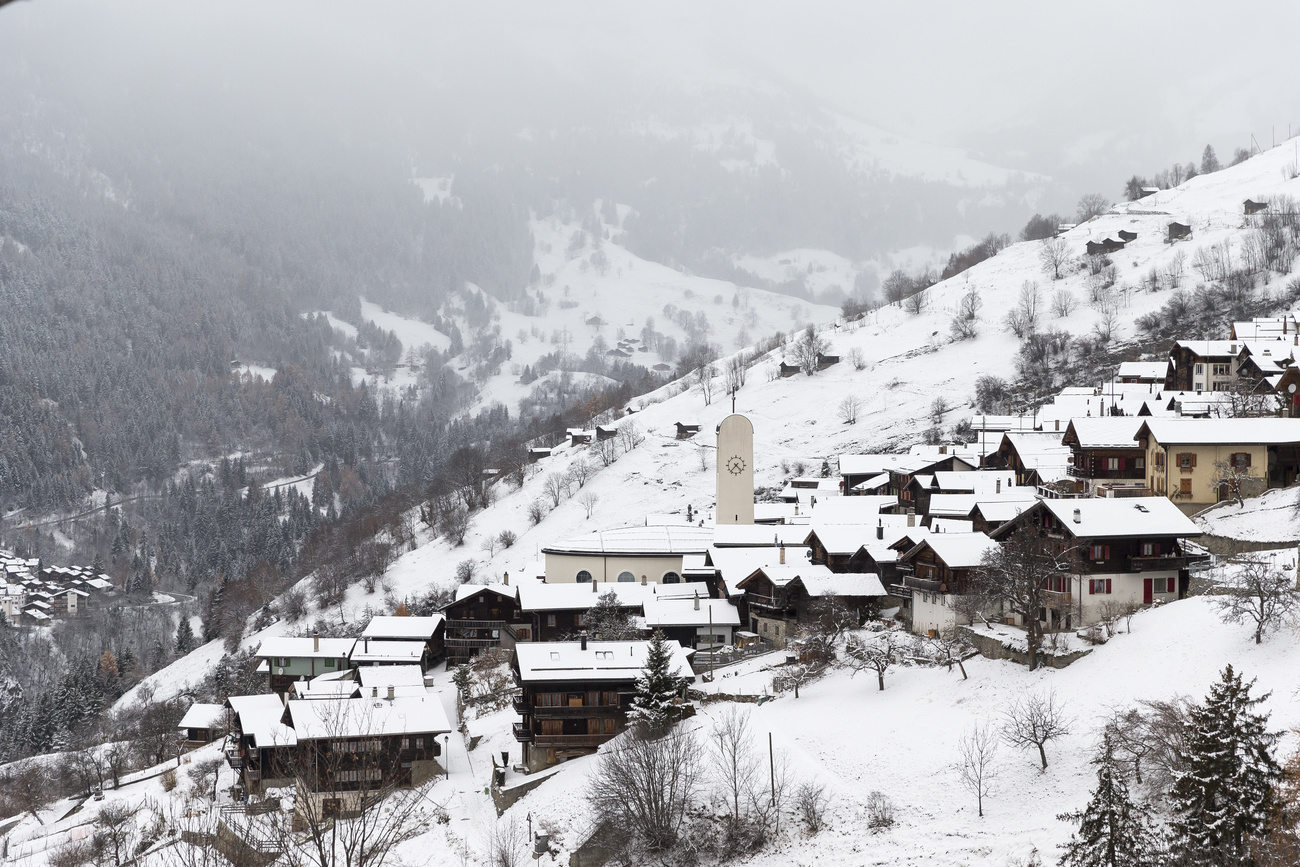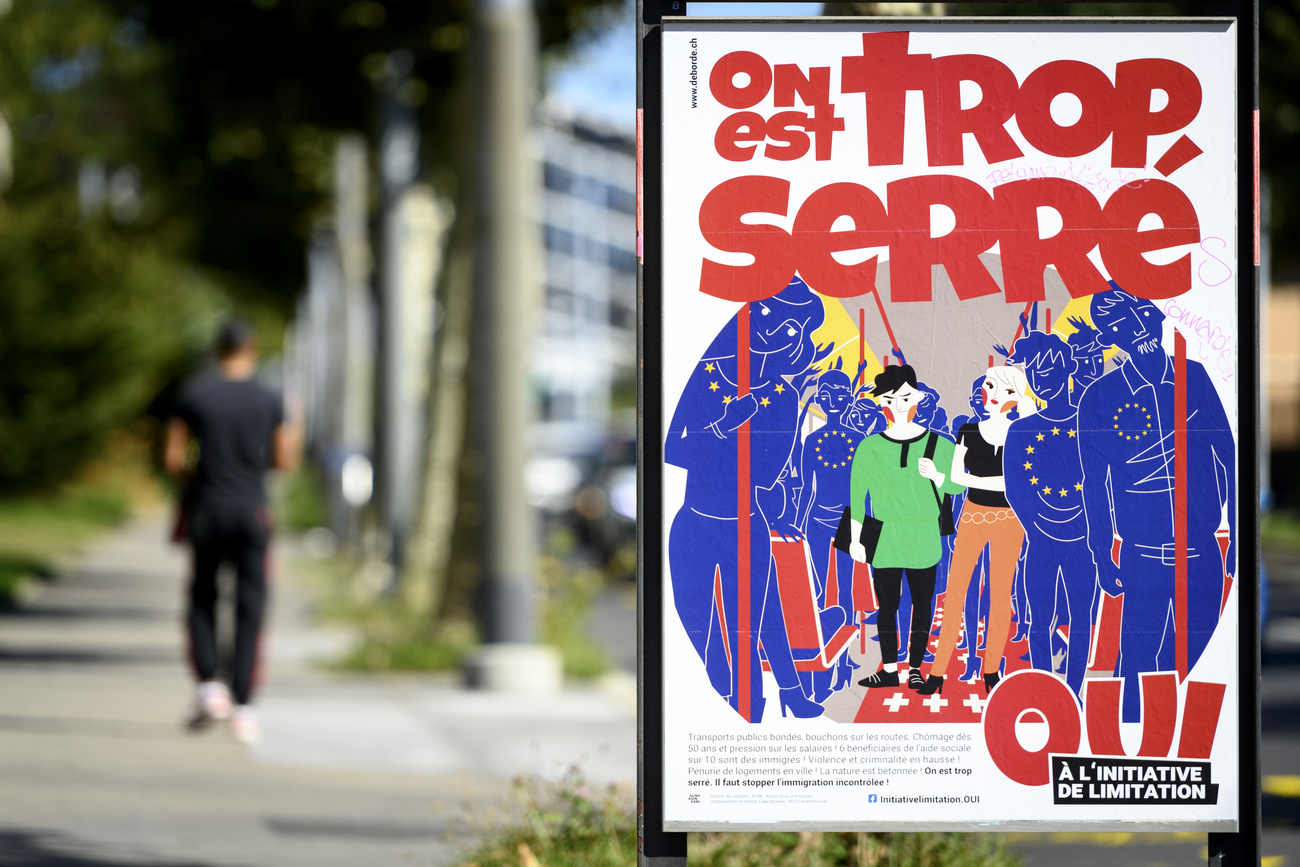

Switzerland Today
Greetings from Bern,
I am sure some of you (or your ancestors) left a Swiss village to start a new life abroad. But many people from abroad would love to live in a Swiss village, especially if they received money to relocate.
The announcement in 2017 that the Swiss mountain village of Albinen was giving people money to relocate there led to an avalanche of queries to SWI swissinfo.ch. Even today we get questions from people all around the world asking how they can start a new life in Albinen.
We look at the consequences of the bold move for the village and if it has resolved the problem of depopulation.

Pay up and they will come: The curious case of Albinen
In 2017 Albinen (pictured) voted to offer a CHF25,000 ($28,000) inducement for adults and CHF10,000 for children to make their home in the village in the southwest canton of Valais. The scheme was designed to counter a steady outflow of its population – which had shrunk to just 200 – to larger towns.
“We’re pleased to see how the village has been swept up in a feeling of optimism,” Albinen mayor Beat Jost told SWI swissinfo.ch two years into the scheme. “Albinen is alive! And that’s exactly what we wanted.”
But the inducement scheme has partially backfired as international media coverage led to an unforeseen administrative burden and most applicants did not have the right to live in Switzerland.
“We get around a hundred enquiries a day. Most come from abroad and do not meet our conditions. We must still answer them and that is a lot of work,” current mayor Nicole Köppel told the Watson.ch External linknews portal.
The village has approved 17 applications, attracting nearly 50 new residents, at a cost of CHF710,000, Watson.ch reports. However, some residents feel that the conditions that led to depopulation in the first place have not been resolved.
“Albinen has no school, no bank, no post office, one remaining pub, one shop and a bus every hour. You have to anticipate that beforehand and accept it when you’re here,” says Köppel.

Too many people or too many foreigners?
Whether it is a small Swiss mountain village or the whole of Switzerland, the arrival of outsiders can be a thorny issue. A survey of over 50,000 Swiss residentsExternal link by the Tamedia group reveals today that almost two-thirds are in favour of restricting immigration. The sentiment was prevalent across the political spectrum. Around 93% of respondents on the right were in favour, compared with 70% of centrists and 51% of left-leaning residents.
Of the non-Swiss residents polled, those that have been living in Switzerland the longest were more in favour of immigration quotas. Of the foreigners born in Switzerland, 67% wanted to limit immigration while only 47% of those who have been in the country for less than five years wanted restrictions.
Demographic factors were responsible for the fact that immigration is viewed so critically by respondents, according to the Tages-Anzeiger newspaper. The permanent foreign resident population in Switzerland has increased significantly in the past year. In 2022 around 81,000 more foreigners immigrated than left the country.
The federal government said the main reason for this is the increasing demand for workers. More than a quarter of the Swiss resident population do not have Swiss citizenship.

How do the Swiss die?
It’s that time of the year when the Federal Statistical Office releases the official figures on mortalityExternal link. As always, they’re a couple of years behind as it takes time to compile data from all the cantons. In 2021, a total of 71,192 Swiss residents died.
So, how do the Swiss die? It depends on age and sex. If you’re a young lad under the age of 24, you are most likely to die from an accident or meet a violent end. If you’re an old woman over 85 years, then your nemeses are cardiovascular diseases or dementia.
Of course, you’re more likely to die if you’re older, which is why the biggest killers in 2021 were the three Cs: cardiovascular diseases (27.6% of deaths), cancer (23.7%) and Covid-19 (8.4%).
And there are some who voluntarily choose to leave this world. A total of 719 men and 286 women ended their lives at an average age of around 55. In addition, 580 men and 811 women opted for assisted suicide at an average age of around 77.
More

In compliance with the JTI standards
More: SWI swissinfo.ch certified by the Journalism Trust Initiative





























